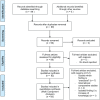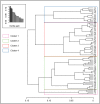Global trends of local ecological knowledge and future implications
- PMID: 29621311
- PMCID: PMC5886557
- DOI: 10.1371/journal.pone.0195440
Global trends of local ecological knowledge and future implications
Abstract
Local and indigenous knowledge is being transformed globally, particularly being eroded when pertaining to ecology. In many parts of the world, rural and indigenous communities are facing tremendous cultural, economic and environmental changes, which contribute to weaken their local knowledge base. In the face of profound and ongoing environmental changes, both cultural and biological diversity are likely to be severely impacted as well as local resilience capacities from this loss. In this global literature review, we analyse the drivers of various types of local and indigenous ecological knowledge transformation and assess the directionality of the reported change. Results of this analysis show a global impoverishment of local and indigenous knowledge with 77% of papers reporting the loss of knowledge driven by globalization, modernization, and market integration. The recording of this loss, however, is not symmetrical, with losses being recorded more strongly in medicinal and ethnobotanical knowledge. Persistence of knowledge (15% of the studies) occurred in studies where traditional practices were being maintained consiously and where hybrid knowledge was being produced as a resut of certain types of incentives created by economic development. This review provides some insights into local and indigenous ecological knowledge change, its causes and implications, and recommends venues for the development of replicable and comparative research. The larger implication of these results is that because of the interconnection between cultural and biological diversity, the loss of local and indigenous knowledge is likely to critically threaten effective conservation of biodiversity, particularly in community-based conservation local efforts.
Conflict of interest statement
Figures




References
-
- Díaz S, Fargione J, Chapin FS, Tilman D. Biodiversity loss threatens human well-being. PLoS Biol. 2006;4: 1300–1305. doi: 10.1371/journal.pbio.0040277 - DOI - PMC - PubMed
-
- Cardinale BJ, Duffy JE, Gonzalez A, Hooper DU, Perrings C, Venail P, et al. Corrigendum: Biodiversity loss and its impact on humanity. Nature. 2012;489: 326–326. doi: 10.1038/nature11373 - DOI - PubMed
-
- Berkes F, Colding J, Folke C. Rediscovery of traditional ecological knowledge as adaptive management. Ecol Appl. Ecological Society of America; 2000;10: 1251–1262. doi: 10.1890/1051-0761(2000)010[1251:ROTEKA]2.0.CO;2 - DOI
-
- Zent S. Acculturation and Ethnobotanical Knowledge Loss among the Piaroa of Venezuela: Demonstration of a Quantitative Method for the Empirical Study of Traditional Environmental Knowledge Change In: Maffi L, editor. On Biocultural Diversity: Linking Language, Knowledge, and the Environment. Washington, D.C. and London: Smithsonian Institution Press; 2001. pp. 190–211.
-
- von Glasenapp M, Thornton TF. Traditional Ecological Knowledge of Swiss Alpine Farmers and their Resilience to Socioecological Change. Hum Ecol. 2011;39: 769–781. doi: 10.1007/s10745-011-9427-6 - DOI
Publication types
MeSH terms
LinkOut - more resources
Full Text Sources
Other Literature Sources

